This post may contain affiliate links. If you make a purchase through a link, I may receive a small commission, at no cost to you. These commissions help keep this website up and running, and I thank you for your support. Read my full disclosure here.
Disclaimers: I have in no way been influenced or paid to endorse these products. All recommendations are my own.
I am not a medical professional. Talk to your doctor before making any changes to your diet.
Some of my worst bouts of Irritable Bowel Syndrome (IBS) have been whilst travelling because I can get really stressed, eat all the wrong foods, and consume too much alcohol. It’s left me doubled up in pain and spending my holiday in the toilet instead of out sightseeing. But please don’t let this put you off! After finally facing the reality of my IBS and spending time learning how to manage it better, the issues I once experienced whilst travelling have been greatly reduced. Now I want to share this with you too.
Don’t let IBS stop you from fulfilling your travel dreams. With a bit of planning and preparation you too can enjoy a holiday.
What is IBS?
Irritable bowel syndrome (IBS) is characterized by chronic, relapsing symptoms including lower abdominal pain and discomfort, bloating, wind, distension and altered bowel habit (ranging from diarrhoea to constipation) but with no abnormal pathology. One in seven adults suffer from IBS.
Plan Your Trip
Taking the time to carefully plan your trip is the first step. Creating a detailed itinerary will help ease some of your travel related anxieties and stress. Just make sure you don’t over schedule your time so you’re rushing around. Put some time in your schedule to relax!
However, if travelling independently sounds too stressful, then consider joining a tour. Generally, tour operators are experienced at accommodating peoples needs, such as mobility and dietary. Those big tour coaches generally have toilets on board and they arrange regular toilet stops as well. Before booking with a tour company, make sure you look at the reviews from other travellers and discuss with them how they can meet your needs.
Know What Triggers Your IBS
Food & Drink
Food and drink triggers are particularly individual for IBS sufferers. For example, although foods that are high in pre and probiotics can improve some people’s IBS, for others it can actually make it worse. For me it is alcohol and sugar, two things that I love and tend to eat more of whilst on holiday. It is often about consuming these things in moderation, but sometimes there are foods that you cannot eat at all.
Before heading out on your holiday, get a better understanding of what food you can consume without pain by using the FODMAP App. Developed by Monash University, FODMAP is an acronym that describes the short-chain carbohydrates that are poorly digested. Basically, the low FODMAP diet aims to remove poorly absorbed carbohydrates from the diet for a period of time and then reintroduces them to help you determine which foods trigger your symptoms. The App provides information about the diet and a searchable database for all the foods that have been tested and what serving sizes are acceptable. It even has recipes and an option to create a shopping list and symptom diary.
Overeating can also trigger IBS. I have a serious problem with eating waaay more than I can comfortably eat. This then puts extra pressure on my stomach and I end up getting a really swollen, gassy, belly. This can be made worse if I’m wearing clothes with a tight waistband. Usually on holiday I’m enjoying an alcoholic drink with my meal. But drinking alcohol at the same time can dull my senses and I often don’t realise that I’m full already before it’s too late. I also have the habit of eating my food way too fast. Try and slow down, take long pauses, and consider serving sizes. If the serving sizes are large then think about sharing your meal and/or sectioning off what is a reasonable serving size and limit yourself to that.
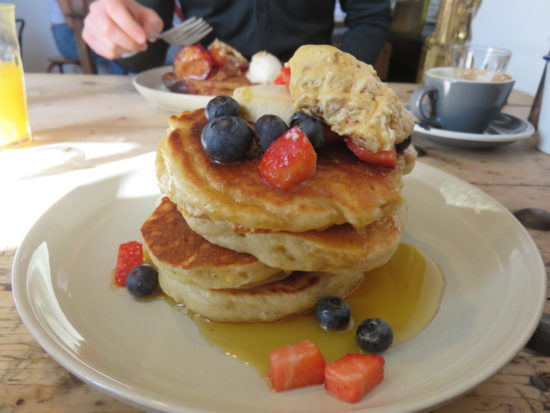
Stress and Anxiety
Stress and anxiety are big IBS triggers. Our colon is partly controlled by the nervous system, which responds to stress. In addition, just having IBS can also make us feel more anxious and depressed. The key is to take a proactive response to managing it and not just ignoring it. Before heading out on your holiday, spend some time working out what helps you. Relaxation and Mindfulness are powerful approaches to reducing anxiety and stress. I thoroughly recommended downloading the HeadSpace App.
Plan What and Where You Are Going to Eat
This ease of planning what you are going to eat on your holiday greatly depends on where you are going. If you prefer to prepare your own food so you can have total control over what you eat, then book self-contained accommodation with cooking facilities. When looking for suitable accommodation, check with the owners if a supermarket is in easy access. You can also do this by checking on Google Maps.
Plan where you are going to dine out using sites like TripAdvisor. If you are keen to try the local cuisine, Google recipes to see what they generally contain. Although the restaurant will likely have their own way of preparing it, at least it gives you a general idea.
Bring your favourite ‘safe’ foods with you (be mindful of customs restrictions) incase you get into a situation where you can’t find anything suitable to eat.
Language
Write down what you can’t eat in the local language and carry it around with you to hand to the waiter/serving staff. Try using Google Translate, its free!
Toilets
If you can afford it, book a room with a private ensuite so you don’t have to stress about not being able to get access to a toilet when you need it. You can also take your time without worrying about someone waiting to get in. However, if you are stuck with the only option of a shared bathroom, try and find out from the owner how many rooms will have to share the bathrooms. For example, when travelling in Iceland, most accommodation only offered shared bathrooms, but many of the places we stayed only had a few rooms sharing the bathroom so it wasn’t too bad.
Whilst sight seeing, the idea of not having access to a toilet can really trigger anxiety and thus your IBS. Some countries have readily available public toilets, but others you have to search a bit more. You can usually get access to toilets in shopping malls, multi-national chain cafes and fast foods restaurants such as Starbucks and McDonald’s. Local cafe’s, bars and restaurants will usually expect you to purchase something in order to use them. However, I find when they are busy they don’t really notice you slipping in just for the toilet. Most large hotels have toilets in the lobby area. Just walk in with confidence and no one will know you aren’t staying there.
In countries that make you pay to use public toilets, always have some change in the local currency on you. Some are automated, so you will need coins to put into the machine, but others will have a toilet attendant, but they are usually only able to provide a bit of change (so don’t give them large notes).
Transport
Unfortunately, flying can cause bloating, gas, and constipation, even for those without IBS. Referred to as ‘jet belly’, it is caused by the cabin altitude. Gases, including those in your gut, expand as pressure decreases (or as altitude increases). There’s not much you can do about this, but you can help alleviate the symptoms by keeping hydrated, drinking water and steering clear of carbonated drinks which can make it worse. Make sure you have your medicinal support within easy access such as your prescribed drugs or peppermint capsules. Regularly get up and walk around to try and help things keep moving so to speak and make sure you are wearing comfortable clothes for your flight with a loose waistband. A flowy dress is perfect or trousers with a drawstring waistband that can easily be adjusted.
When booking your flight, choose an aisle seat so that you can more freely get to the toilet without worrying about disturbing others. If you get a meal on board, then Airlines usually provide some options that hopefully meet your needs. Just in case they don’t, carry some ‘safe’ snacks with you on board.
Most long-haul trains and buses have toilets on board (not particularly pleasant to use), but check with the company before booking if you are concerned about this.
Sleep
Lack of sleep can create stress and anxiety and consequently trigger your IBS symptoms. Sleeping whilst travelling can be really difficult, trust me, I know this only too well. So over the years I’ve developed lots of tricks and strategies that make sleeping on my holidays a lot more comfortable and achievable, no matter the circumstances. Read my post The Secrets to Sleeping Well Whilst Travelling which will give you tips and tricks for sleeping anywhere from a plane to an uncomfortably hot hotel room.
Be Prepared
Travel with packets of tissues in your purse and pockets in case the toilet does not have any toilet paper. If you have greater toilet needs then you might want to stash a roll in your bag.
Try to avoid packing clothing with a tight waistband, as this can aggravate IBS causing a swollen gassy belly.
Consider packing the following:
- Spare toilet paper and some pocket tissues.
- If you have concerns about having a continence incident, then use disposable continence pads.
- Peppermint oil capsules (personally this does not help me, but I know it can help others).
- Prebiotics – I use inulin in the form of chicory root powder, but if you can’t tolerate inulin, then try the other prebiotic GOS in the form of Bimuno. Read my comparison of these prebiotics to find out which is the best for you.
- Probiotics – I use Bio Kult Probiotics.
- Special tea that may alleviate your symptoms like peppermint and chamomile. Try my Herbal Tea Recipe That Aides IBS Symptoms.
- Any medications that your GP may have prescribed or recommended to help your IBS and/or anxiety like Buscopan for IBS.
- Heat pack (if this helps ease your pain).

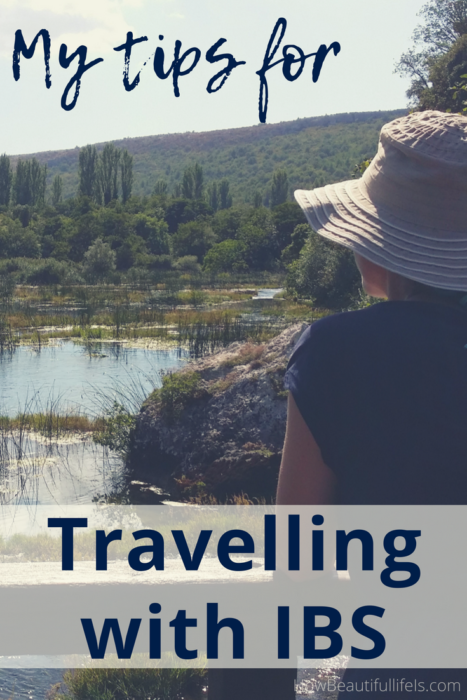
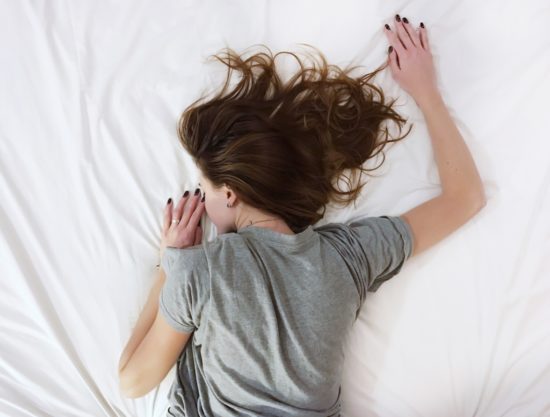
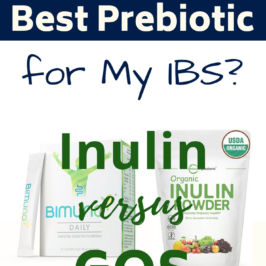



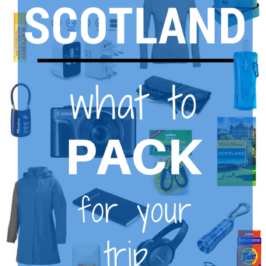
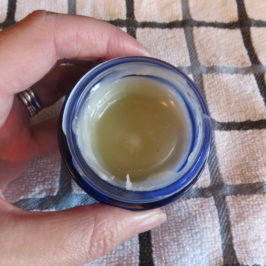
Leave a Reply